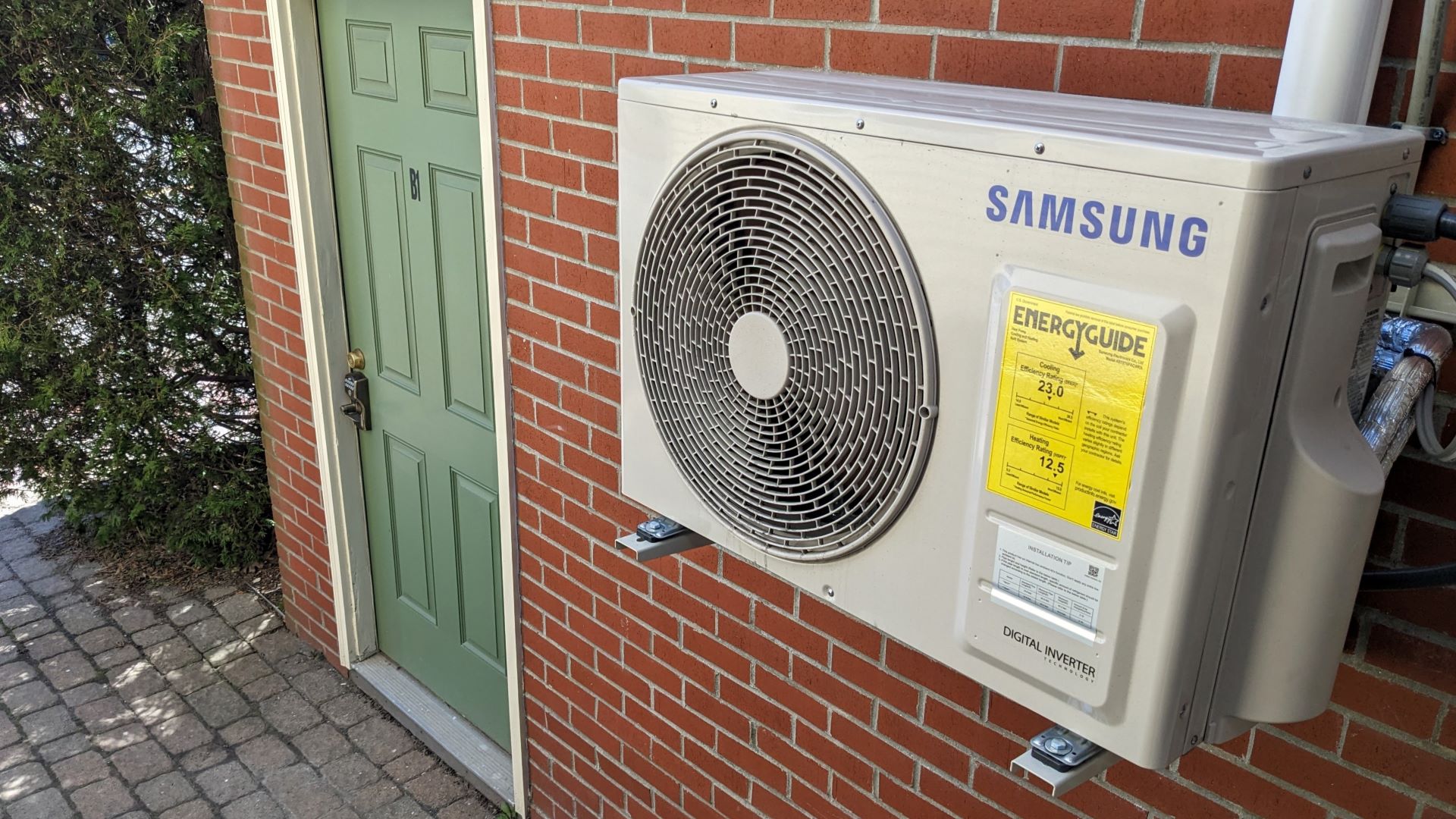A recently announced $450 million federal grant aimed at reducing climate pollution across New England could help Maine meet its ambitious goal to place thousands of heat pumps in low-income homes and expand a critical subset of HVAC technicians trained to install them.
In interviews with The Maine Monitor, federal and state officials said the money from the U.S. Environmental Protection Agency — which will amount to between $45 and $72 million depending on how allocations are finalized this fall — will reduce greenhouse gas emissions and help protect Mainers from extreme cold and heat in residential buildings.
Behind the transportation industry, residential buildings make up the state’s second-most polluting sector, responsible for 21 percent of Maine’s greenhouse gas emissions. Heat pumps can provide both heating and cooling with 60% lower carbon emissions than heating oil, The Monitor previously reported.
Officials for the Governor’s Energy Office said the heat pump technology would reduce both greenhouse gas emissions and the harmful pollutants that can come with burning home fuel oil.
State officials only have rough estimates for what the grant will ultimately buy in Maine, but the funds could be put toward heat pump water heaters, heat pump systems for whole homes or a mix of the two, according to Michael Stoddard, executive director of Efficiency Maine, the quasi-state agency that will implement the funding.
Using the lower range of the awarded grant and recent costs, Efficiency Maine roughly projects that funding directed only toward new heat pump water heaters could add 40,000 new units to Maine homes. That same amount put toward just heat pumps could purchase systems for 3,500 to 6,500 Maine homes (multiple units are often needed for a single house).
The state set a goal of installing 15,000 heat pumps in low-income homes by 2025, and as of the end of last year was just over halfway there, according to data from the Maine Climate Council. State officials emphasized that Maine is adopting heat pumps faster than any other state in the country; with more than 115,000 installed since 2019.
Low-income homes are confronted with “particular barriers to maximizing the benefits from this switch — from poor weatherization, to navigating a daunting web of incentives, to fine-tuning a blend of heat sources that can withstand power outages and actually save money instead of driving up bills,” The Monitor‘s Annie Ropeik wrote last year in her series “Hooked on Heating Oil.”
Stoddard said he is hopeful that this new program will knock some of those barriers down and streamline that web of incentives, explaining heat pumps’ benefits and encouraging participation.
When asked if the grant program would address other barriers — like poor weatherization, which is more common for low-income homeowners who own older houses — Stoddard said it would just focus on heat pump installation, “not intending to complicate customers’ access to these new heat pump incentives by adding procedural or other requirements.”
There are other Efficiency Maine incentives for weatherizing homes, Stoddard said. He also pointed to the state’s heating assistance program, which can cover electric heating costs.
David Cash, administrator of the EPA New England region that includes Maine, said the cooling properties that the heat pumps can provide could be crucial for elderly people, a group that is more prone to heat-related illnesses. Maine could see mean annual temperatures increase by 2 to 4 degrees Fahrenheit by 2050, according to this year’s update to the Maine Climate Council’s assessment.
Cash said he spoke with mobile home residents in Vermont who described just how uncomfortable it can be to live in these increasing high heat conditions.
“I mean the stories are incredible, and that’s what this is all about: Providing people with (…) heating and cooling in a way that just makes their lives better,” Cash said.
Crucially, the millions of dollars destined for Maine will also fund specialized training for the HVAC technicians needed to install the systems.
Stoddard described the potential for a sort of hub-and-spoke model in which large heat pump vendors provide training directly to HVAC technicians and business owners who are already there purchasing equipment.
The Portland Press Herald recently reported a shortage of such technicians and described their aging demographics, citing a state Department of Labor statistic that showed Maine’s number of HVAC employees decreased from 2,510 in 2020 to 2,080 last year.
Meanwhile the Governor’s Energy Office, pulling from a different database, shows there were 3,708 workers specializing in high efficiency and renewable heating and cooling in 2022.
Stoddard expressed confidence in the capacity of Maine’s HVAC workforce, pointing to Efficiency Maine’s database, which he said connects residents to more than 400 registered vendors in Maine capable of installing and maintaining pumps.
“Among other things, the new grant opportunity provides a degree of assurance to the hundreds of heat pump businesses in Maine that we will have sufficient funding to sustain Maine’s heat pump programs for the next several years,” Stoddard said.







